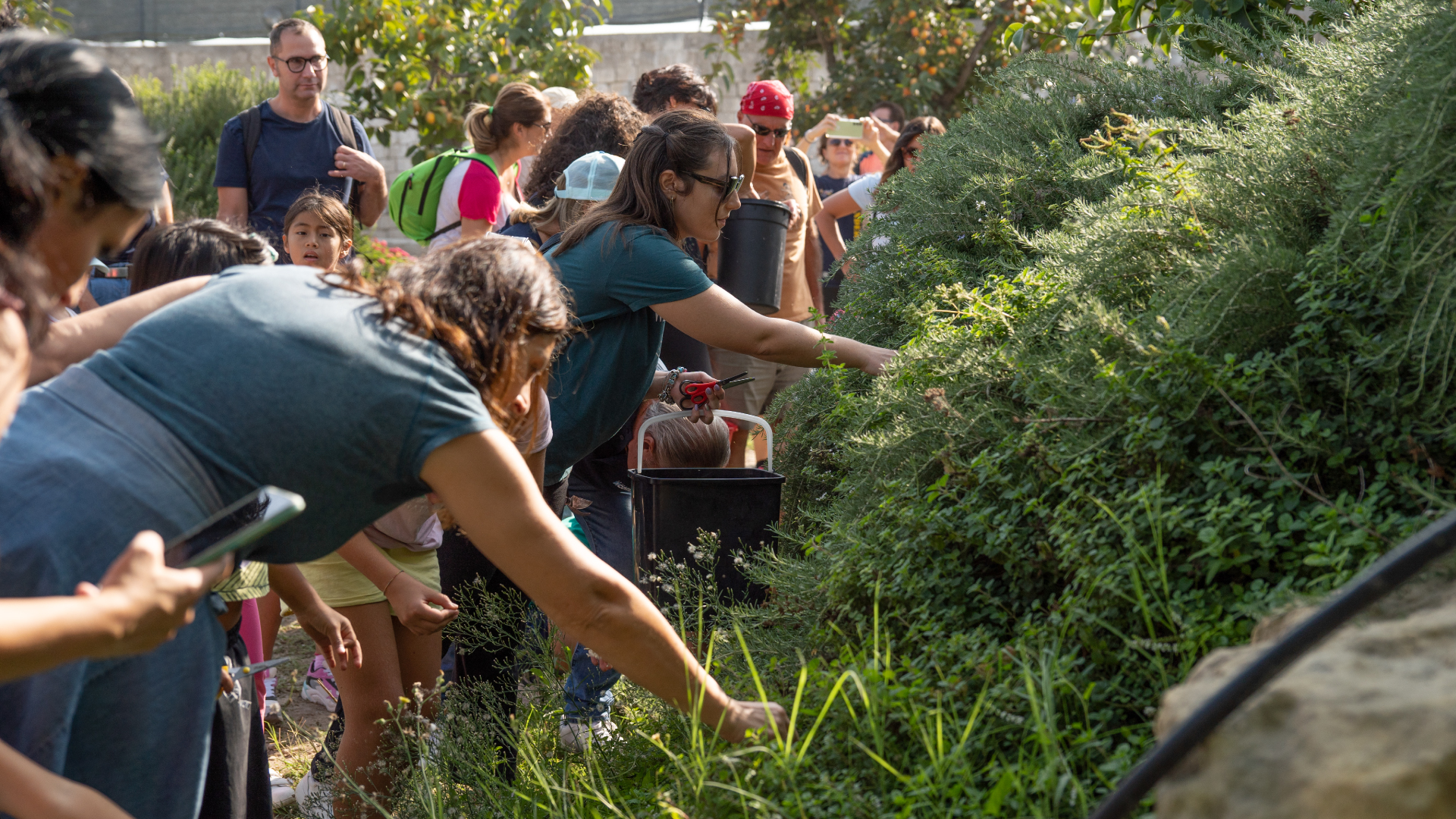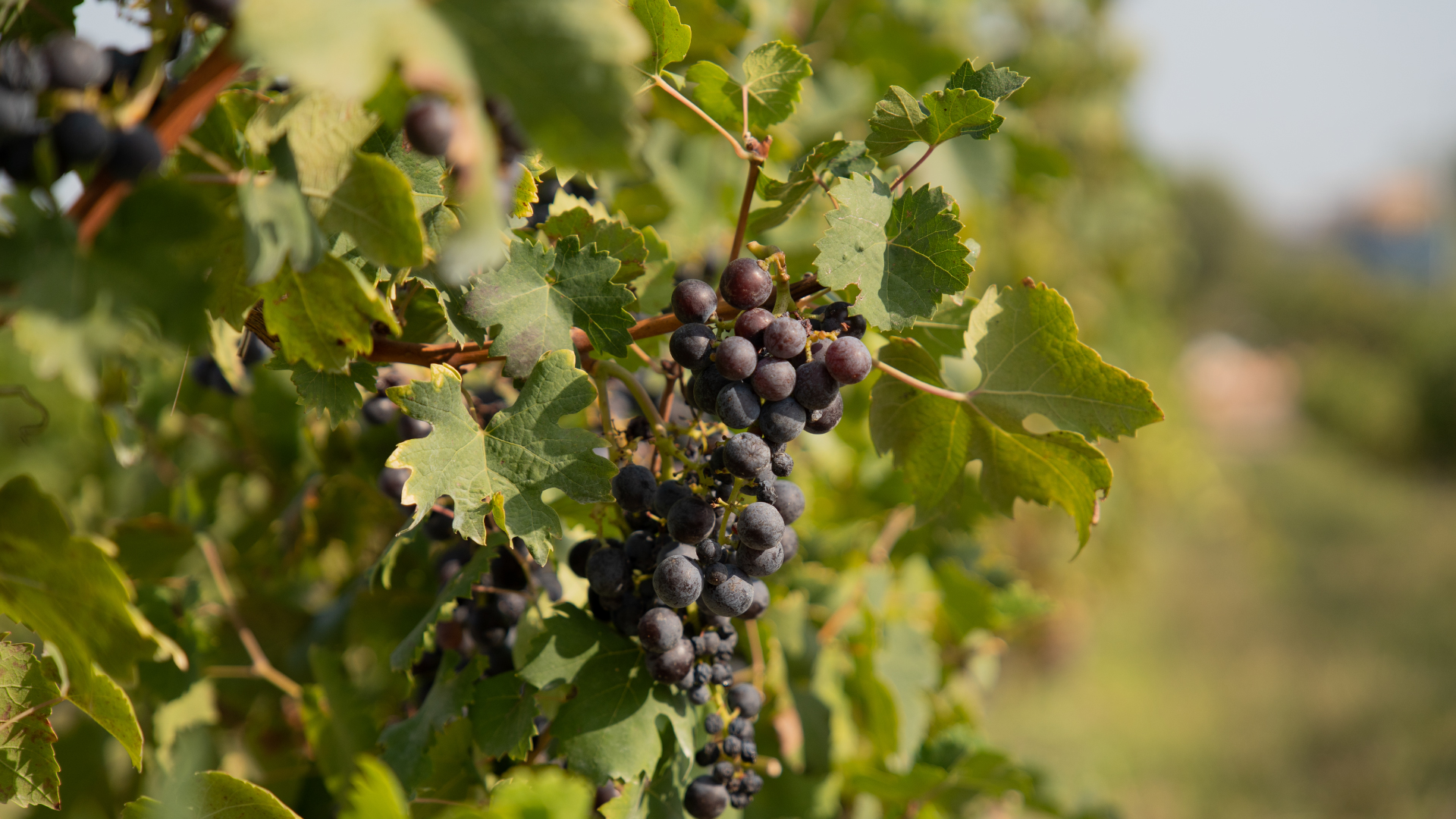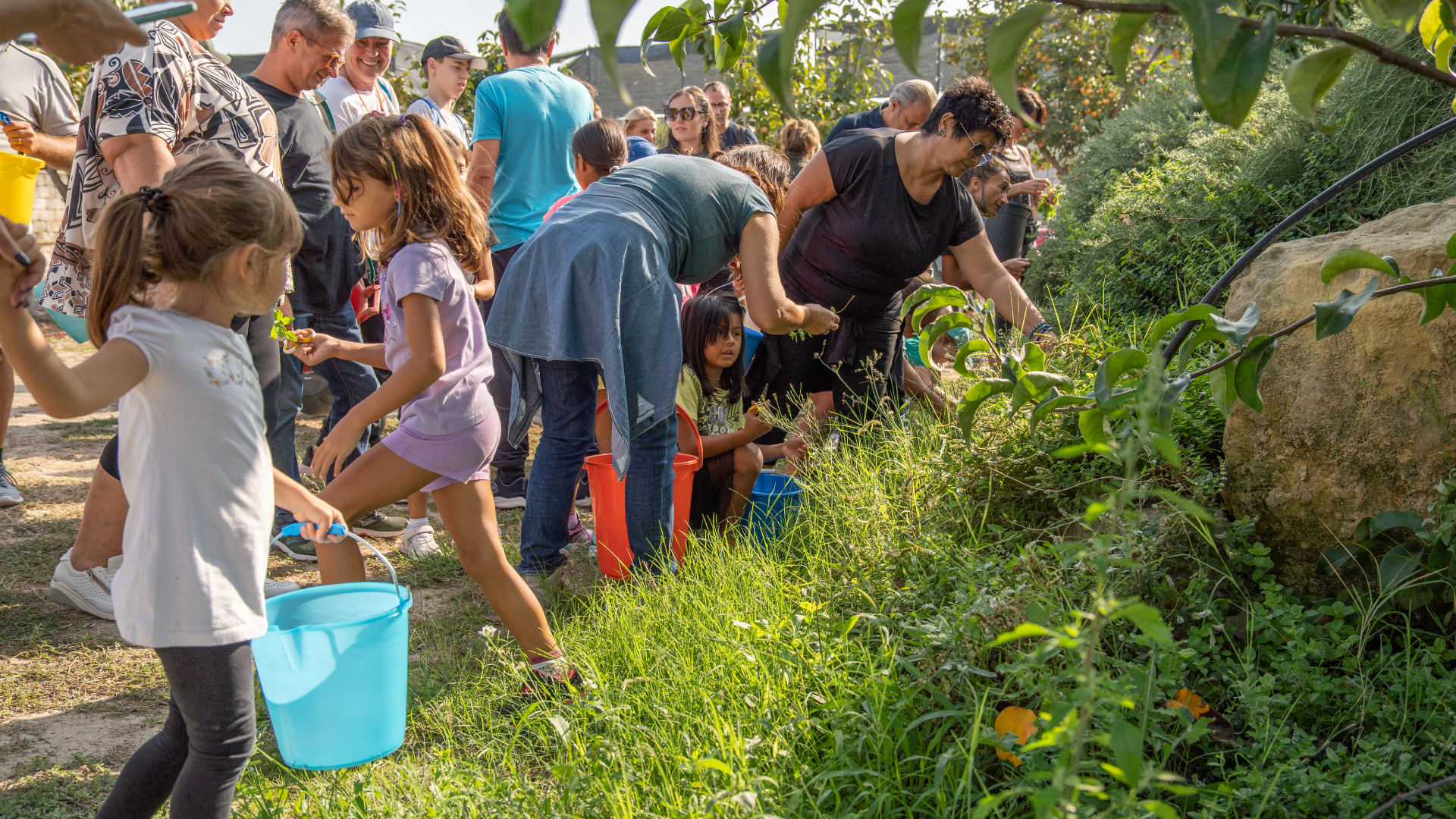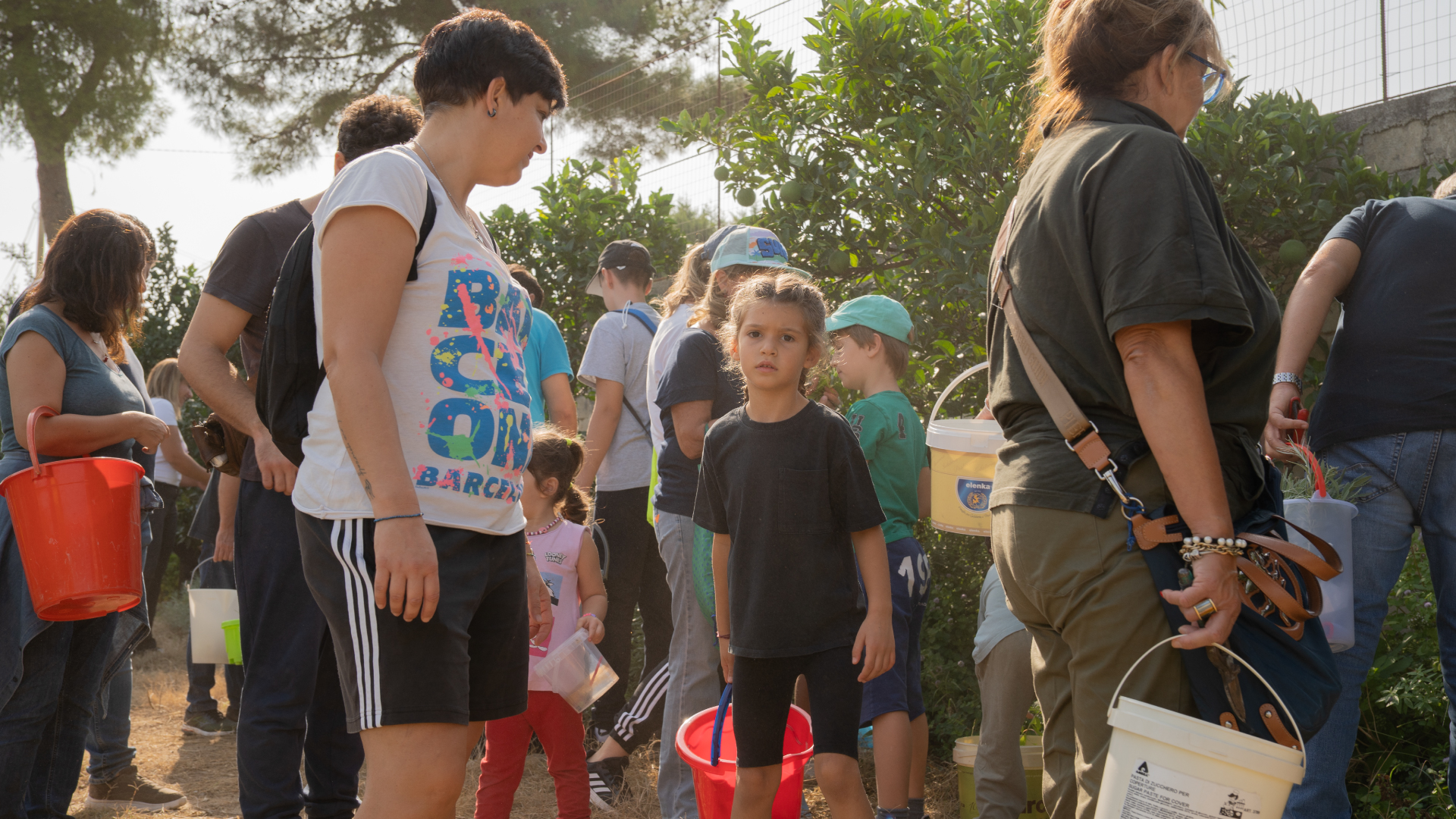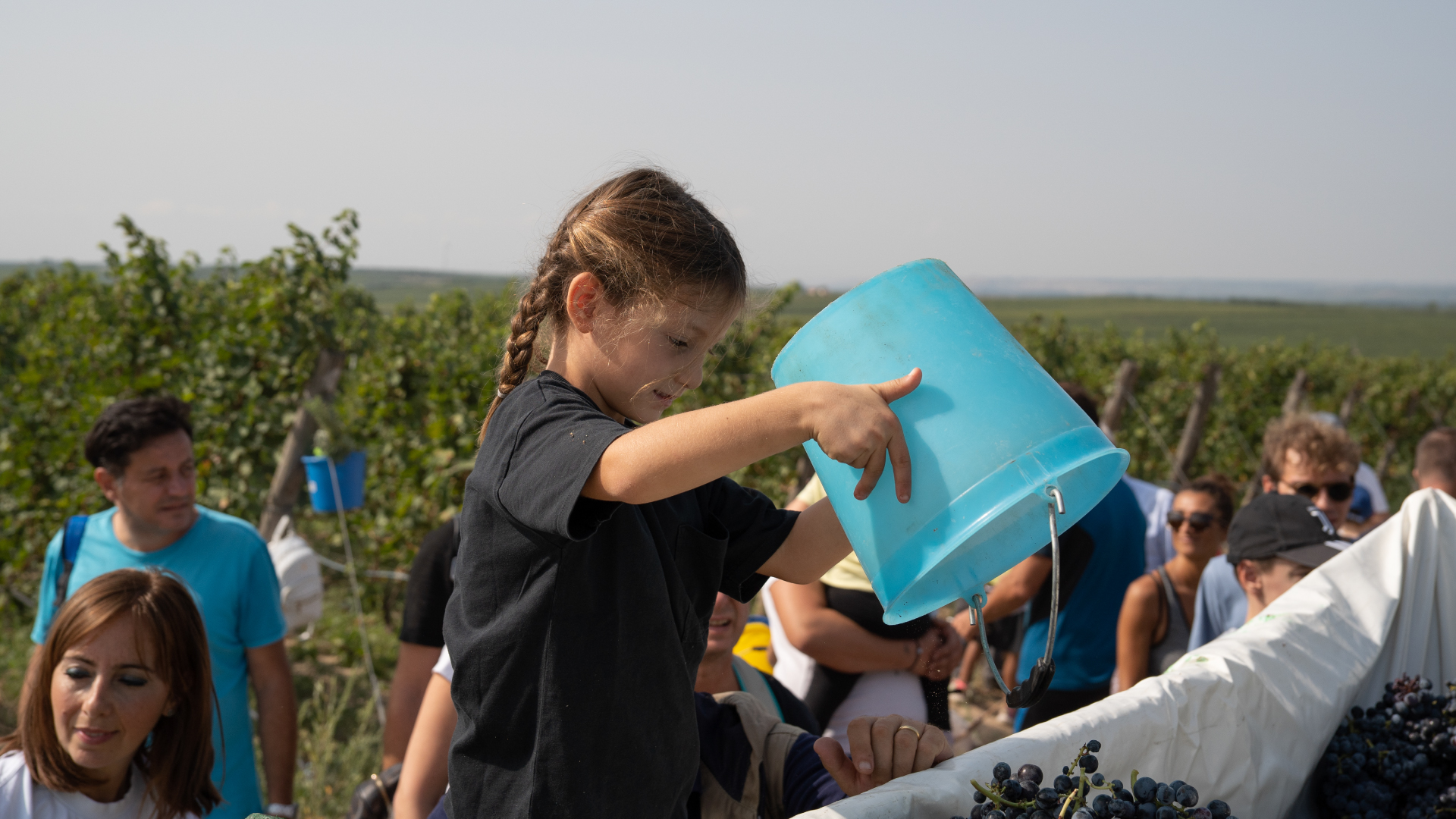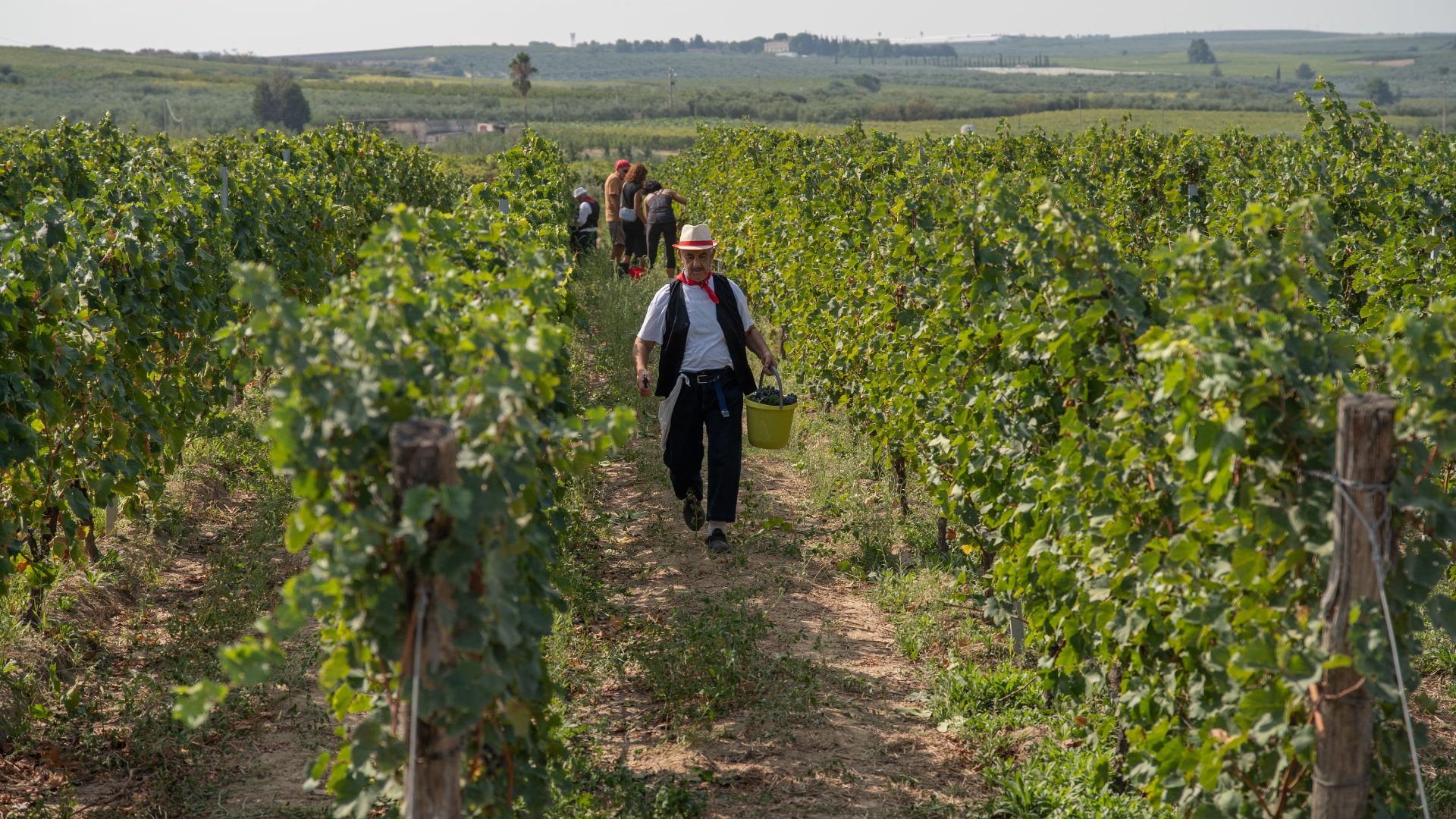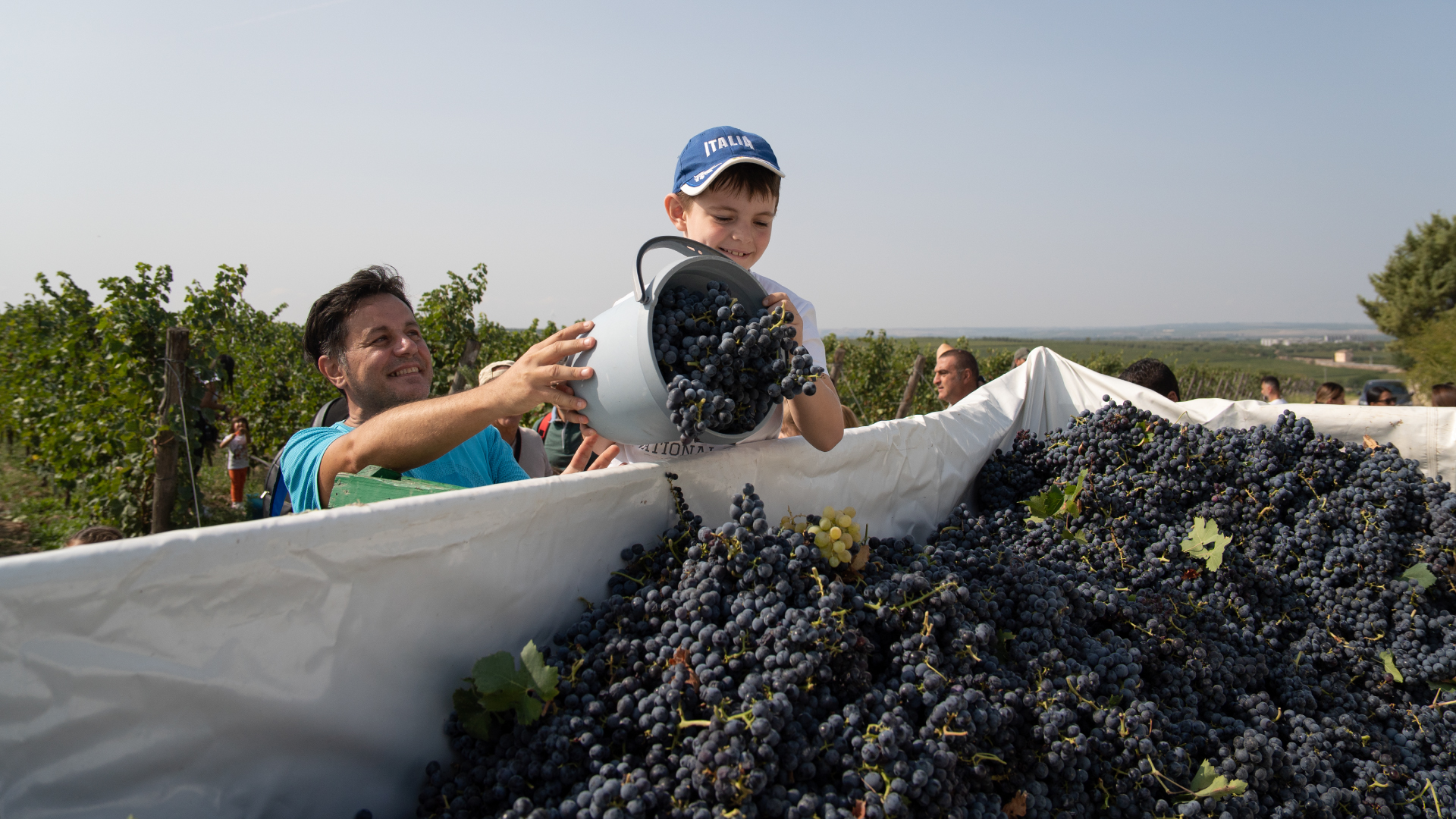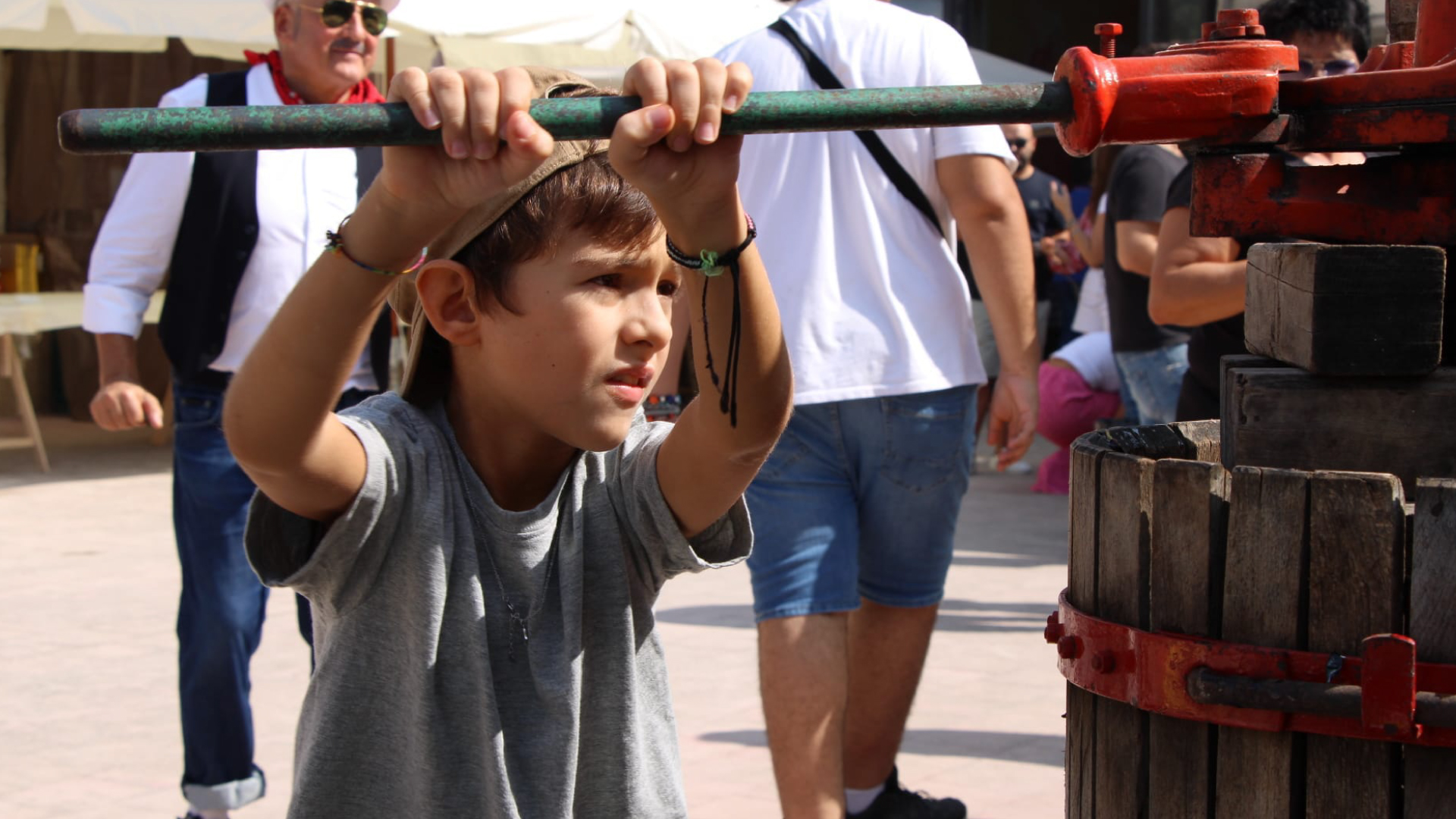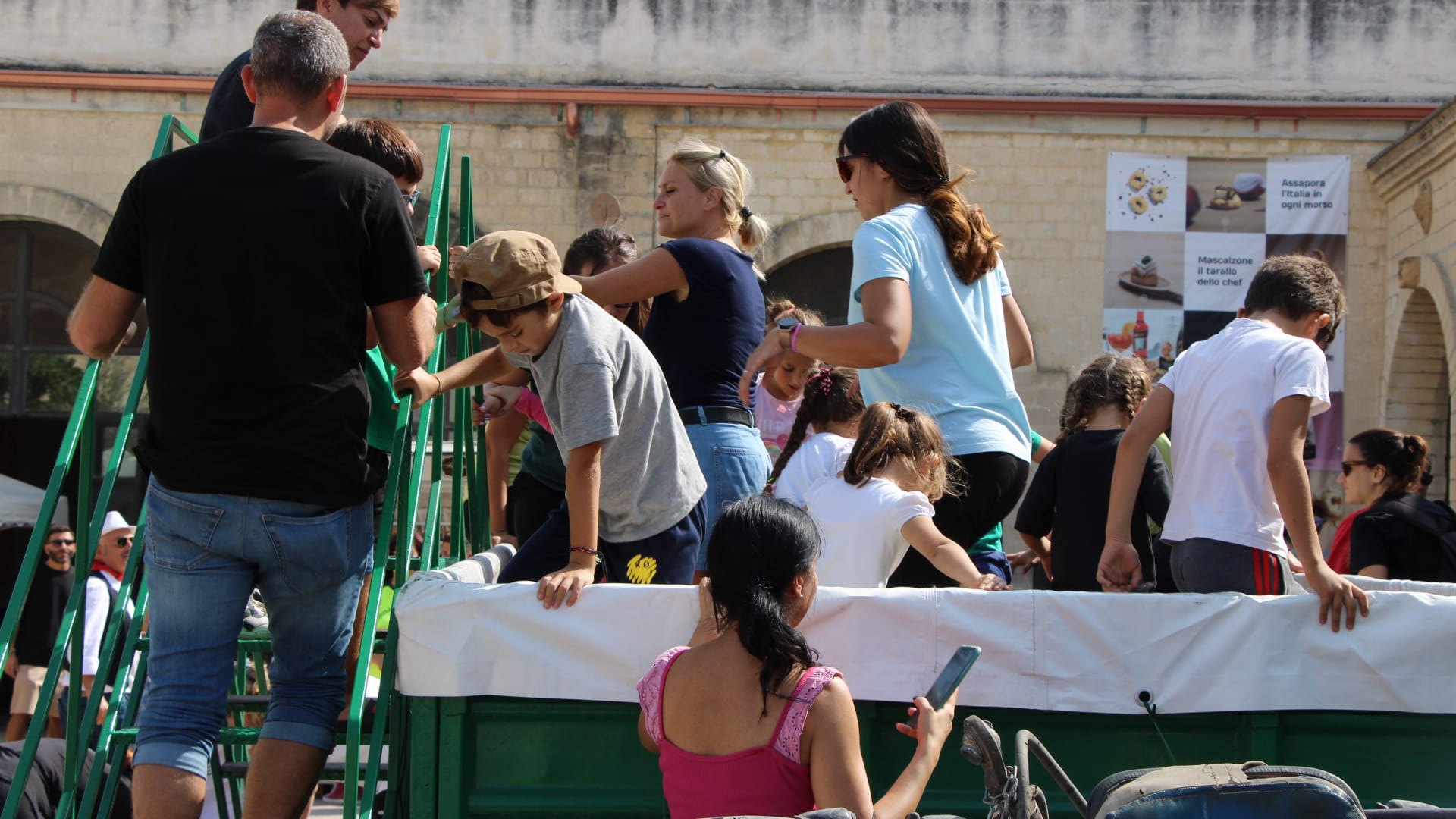The Emotional Harvest:
Education and Values between Tradition and Innovation
The "Emotional Harvest" project is designed to offer children a unique first work experience, blending play, passion, and love for nature.
Organized by “Il Mondo che Vorrei,” this initiative allows the younger generations to engage in one of the oldest processes in our agricultural tradition, turning the grape harvest into an educational and growth experience. By involving teachers, parents, and children, the experience provides a valuable opportunity to strengthen family bonds and convey values of respect and care for the environment.
Phase One: The Harvest
Children, guided by experienced collaborators, begin with a preparation for the harvest, exploring the fragrances and varieties of aromatic herbs to stimulate their senses and connect with nature.
During the actual harvest, they work alongside parents and teachers, picking and pressing grapes in a festive and collaborative atmosphere. Each gesture becomes an opportunity to learn, savor the fresh grape juice, and discover the beauty of tradition.
Phase Two: Bottling
Following the harvest, the children come together to take part in the bottling process. Every young participant eagerly follows each step, from corking to capping and labeling, personalizing their own bottle. The wine produced becomes a tangible keepsake of this experience, a symbol of shared commitment and passion.
An Educational Project for Schools and Families
The “Emotional Harvest” is aimed at schools, educational professionals, and families, offering an educational journey that fosters environmental awareness, love for nature, and respect for tradition. Through the direct involvement of children, teachers, and families, the project leaves a meaningful mark on the lives of young participants, helping shape future citizens who are conscious and respectful of the environment.
The activity is further enriched with artistic workshops and guided tours. A master potter leads the children in working with clay, transforming the material into items tied to winemaking traditions, while visits to nearby archaeological sites allow participants to explore the historical roots of the region, embarking on a journey of learning and discovery.

